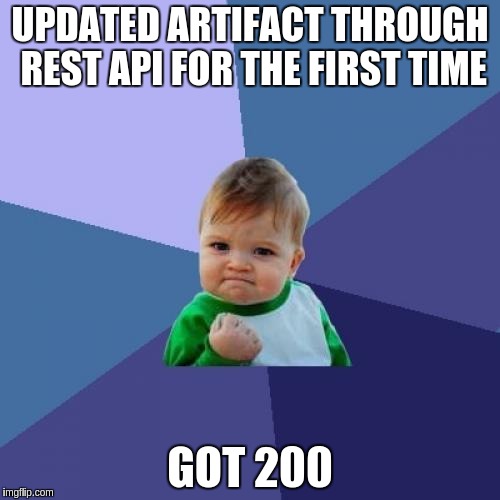3. Update an artifact
As seen in the previous section Query the artifacts, retrieving information is done through GET requests while update operations are done through POST, PUT, PATCH or DELETE requests.
POST: create a resource,
PUT: Update a resource,
PATCH: Update partially a resource,
DELETE: delete a resource.
Note
The difference between PUT and PATCH is minimal. Usually the PUT takes the whole resource as arguments, whereas the PATCH takes only what need to be modified. Usage of PUT vs PATCH will depends on the route.
3.1. Basic usage
To update an artifact we have to provide an artifact representation (take the one coming from the GET /artifacts/:id
as an example) with updated values.
$ curl -XPUT --header 'Content-type: application/json' \
--header 'X-Auth-AccessKey: tlp.k1.1026…'
-d '{"values":[{"field_id": 694, "bind_value_ids": [597]}], "comment": {"body": "some comments", "format": "text"}}' \
https://tuleap.example.com/api/artifacts/220
HTTP/1.1 200 OK
valuescorrespond to the new field values :694is the id of our Status field597is the id of the value Delivered
commentis to add a new follow-up :bodyis the follow-up’s contentformatis the follow-up’s format
Note
Remember that you can get the id of the fields and values by getting the structure of the tracker thanks to the route
trackers/123.
The server returned a 200 status code, meaning that the artifact is successfully updated.

3.2. Conclusions
Now we are able to:
Do authenticated calls
Do a basic GET to retrieve information (projects, trackers, artifacts, …)
Handle pagination
Update a resource with a PATCH or PUT
That’s it! You have most of the resources needed to use the various REST routes provided by Tuleap. We strongly suggest
that you use the API explorer (https://tuleap.example.com/api/explorer/) which documents all the routes and let you try
them on the fly without having to manage an authentication token or type a curl command.
It’s the end of this REST API Quick Start, you can now use your favorite programming language to enhance Tuleap capabilities.
Happy hacking!
